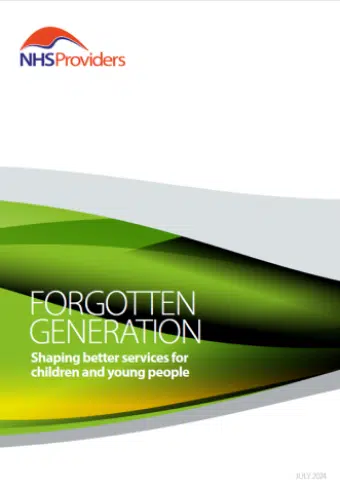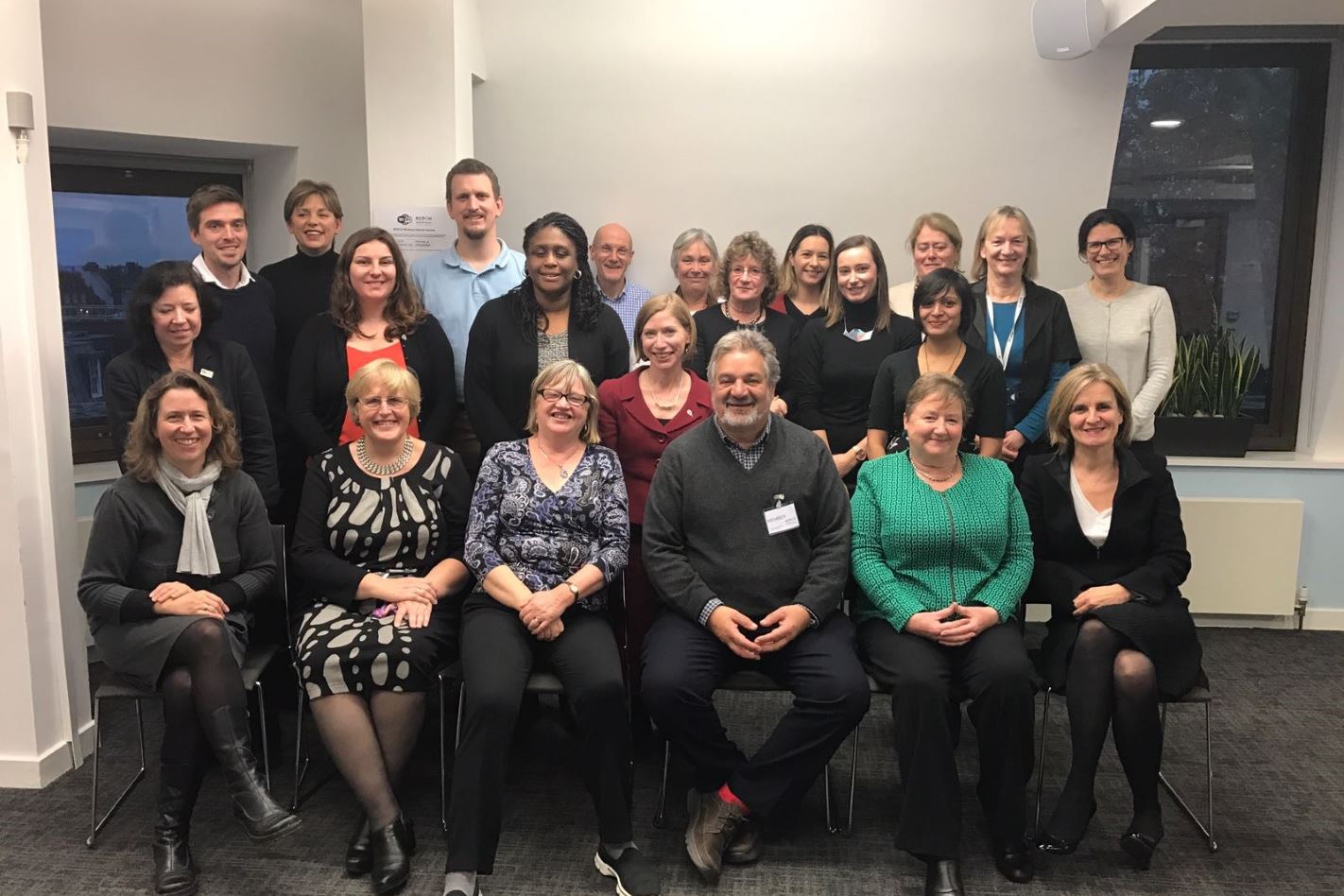- 90% of trusts say children’s health and wellbeing not high enough national priority
- Just 16% of trusts keeping up with demand for CYP services
- Three-year waits for some autism and ADHD assessments
- Cross-government plan and public health boost needed
A forgotten generation’s life chances are being harmed due to delays accessing care according to a new report “Forgotten Generation: Shaping better services for children and young people” from NHS Providers, published earlier this week.
The NHS is struggling to meet rapidly rising demand and increasingly complex and acute care needs among children and young people.
There is deep concern among leaders of NHS trusts about the long-term harm caused by delays in services for children and young people (CYP), including a widening health inequalities gap.
Now NHS Providers is calling for a cross-government plan to improve the wellbeing of children and young people including more investment in early intervention and preventing ill health.
Waits for a range of essential services including health visiting, speech and language therapy, hearing tests, neurodevelopmental services (such as autism and ADHD) and paediatric surgery add to the stress and anxiety of patients, families, carers and NHS staff.
One trust reported that waiting times for children’s autism assessments had increased from around 14 months pre-pandemic to 38 months now.
Findings include:
- Nearly all (97%) trusts responding said demand for CYP services has increased since the Covid-19 pandemic.
- 86% said waiting times for initial assessments had increased compared to pre-pandemic
- 90% said that the health and wellbeing of children is not considered enough in national policy
- 82% said they cannot meet current demand and 75% would be unable to meet anticipated demand in next 12-18 months
- 86% were concerned about the impact on staff morale of challenges providing care
Alison Morton, iHV CEO, commented:
“This stark report from NHS Providers highlights, yet again, the importance of prioritising child health – we cannot afford to have a forgotten generation. The new government’s commitment to create the healthiest generation of children ever is welcomed and actions need to start immediately to turn this into reality. Currently, millions of babies, children and young people are being left without the support they need, with devastating impacts, both personally and across society. Families, healthcare providers and think tanks are all calling for better healthcare throughout childhood, as well as actions to address the wider determinants of health – this cannot be ignored any longer. Health visitors are an important part of the solution and are ready and willing to rise to the challenge and build a healthier future.”






